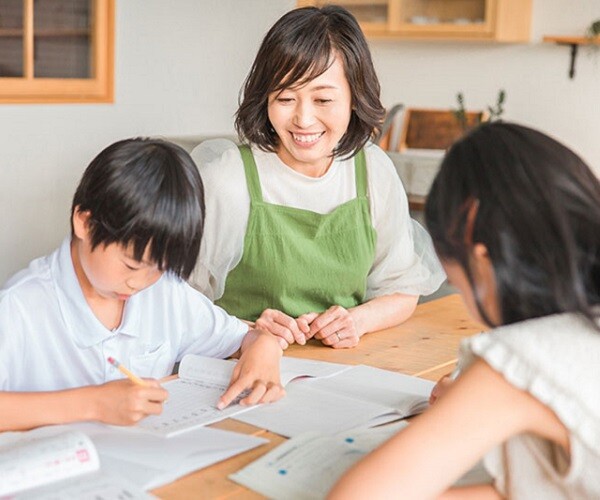Praising others in front of your child can be a delicate matter. It’s important to do it thoughtfully to encourage positive development and empathy. The goal is to inspire your child to recognize and appreciate the good qualities in others.
However, it’s essential to be cautious to avoid any negative impacts. If children frequently hear their parents praising others, they may feel envious and start comparing themselves, leading to a lack of self-confidence.
By paying attention to your child’s emotions and encouraging self-confidence through sincere praise, you can teach them to value themselves and others, fostering respect and love. Let’s explore this further with a scenario and expert advice from psychologist Quang Thi Mong Chi.

Illustrative image.
Scenario
Mother: “I noticed your classmate is excellent at rope skipping. You should learn from her.”
Daughter: “Mom, why do you always praise others? Don’t you love me anymore?”
Why is it important for parents to praise others in front of their children? How does it affect the child’s emotions if the praise is comparative in nature?
Praising others plays a crucial role in a child’s development as it fosters a positive mindset and teaches them to recognize and appreciate the good qualities in others. Witnessing the recognition of others’ achievements can motivate children to develop their skills and cultivate compassion, a willingness to learn, and teamwork.
However, if the praise is comparative, it can influence a child’s emotions in both positive and negative ways. On the positive side, they may feel encouraged to work harder and learn from their peers. Conversely, if not handled delicately, they might feel insecure, envious, or afraid of failure due to the pressure of meeting expectations.
Therefore, parents should opt for specific praise that focuses on their child’s efforts and progress rather than making comparisons.
Statements like, “I noticed you’re jumping rope faster today!” or “You can learn from your friend, but I’m proud of your hard work,” will make your child feel encouraged and loved without the pressure of comparison.
Can comparisons create pressure for the child? Does the expert think that praising others in front of the child without making comparisons would be more effective?
Praising others in front of a child without making comparisons is generally more effective for their emotional and psychological well-being. When parents express admiration or praise objectively, children learn to recognize others’ strengths without feeling threatened or pressured to achieve the same.
This cultivates an open mindset, empathy, and an appreciation for others’ successes. Conversely, if praise is coupled with direct comparison, children may feel inferior or pressured to meet a certain standard, leading to increased insecurity and envy.
Instead of comparing, parents can make positive observational statements like, “I noticed your friend is very skillful at rope skipping; she must have practiced a lot.”
Then, you can encourage your child by focusing on their efforts: “If you want to learn rope skipping, I believe you can do it too with consistent practice.” This approach teaches children to view others’ achievements as learning opportunities rather than a measure of self-worth.
How should a mother respond to her daughter’s question, “Mom, why do you always praise others? Don’t you love me anymore?”
When your daughter asks, “Mom, why do you always praise others? Don’t you love me anymore?” it’s essential to reassure her of your unconditional love and explain that your praise for others doesn’t diminish your love for her.
For instance, you could say, “Of course not, my love for you is endless and unchanged. When I praise others, it doesn’t mean I love you less or that I don’t appreciate your strengths. I want to encourage people when they do something good, just like I’m proud of your accomplishments. I know you have many strengths, and I value your efforts. If something is bothering you, please share it with me. I’m here to listen.”
This response helps your child understand your unwavering love and that praising others doesn’t lessen your affection for them. It also teaches them to accept that anyone can be acknowledged for their positive actions.
How can a mother balance praising others with encouraging her child’s self-confidence while minimizing the element of comparison?
To strike a balance between praising others and fostering your child’s self-confidence without invoking comparisons, focus on their efforts and progress. For example, say, “I noticed you’ve been practicing diligently; today, you jumped rope more than yesterday!” This helps your child understand that their value lies in their hard work.
When praising others, express it objectively without direct comparison: “I noticed your friend plays the piano beautifully; she must have practiced a lot.” Then, encourage your child to learn from them: “If you also enjoy playing the piano, I believe you can achieve the same with dedication.”
Additionally, offer specific and sincere praise for your child’s actions or qualities: “I appreciate how you helped your little brother tidy up his toys. You’re very thoughtful!” It’s crucial to convey unconditional love so your child understands that your affection isn’t contingent on their achievements or comparisons.
Statements like, “Whether you excel or not, I will always love you for who you are,” foster emotional security. Finally, avoid subtle comparative phrases like, “Why can’t you do it like your friend?” or “Look at how well your sibling does it!” as they can breed insecurity. Instead, encourage them with statements like, “I believe you can improve if you keep trying.” This approach nurtures self-confidence and motivates them to focus on self-improvement rather than feeling pressured by comparisons.



































